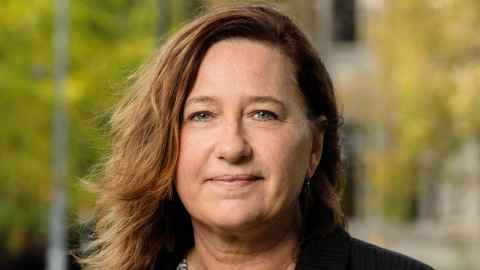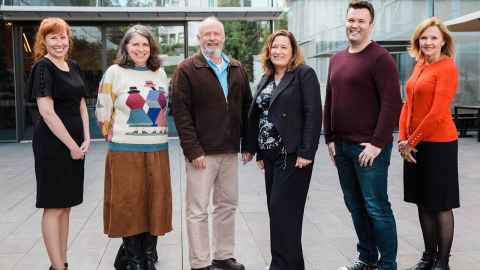University of Auckland leads Covid-19 vaccine monitoring for the world
27 May 2021
Project will coordinate monitoring of vaccines across the globe on a scale never previously seen.

As Covid-19 vaccines are rolled out around the world, an Auckland-headquartered research network is leading the largest-ever vaccine monitoring study.
UniServices, a wholly owned not-for-profit subsidiary of the University of Auckland, has been awarded nearly NZ$8 million (US$5.6 million) by the U.S. Centers for Disease Control and Prevention (CDC) for the study, which will be undertaken by the Global Vaccine Data Network (GVDN).
The GVDN, which has 21 partners in 17 countries, is leading an international effort to monitor and assess Covid-19 vaccines over three years.
The University of Auckland will coordinate the study, which will follow some 300 million people – a vastly larger sample than the tens of thousands involved in clinical trials.
“Never before have so many vaccines been developed and deployed so quickly, to meet so urgent a need,” said Associate Professor Helen Petousis-Harris, principal investigator of the project and co-director of the GVDN. “Though clinical trials provided the information needed to authorise vaccines for use across many countries, it is vital to continue monitoring after the vaccines are deployed.
The huge amount of data will let scientists assess extremely rare side-effects from vaccines
The many new Covid-19 vaccines require global, centralized surveillance to detect any very rare vaccine safety issues and to allow ongoing risk-benefit assessments.
GVDN can compare different Covid-19 vaccines using common protocols despite the diversity of the populations studied. Using de-identified, aggregated electronic data, researchers will assess post-immunisation adverse events such as hospitalisations.
With the huge amount of data, researchers can assess even extremely rare outcomes. They will be able to detect potential concerns and compare outcomes between vaccines as well as between vaccinated and unvaccinated people. Data mining will detect possible unanticipated adverse events.
“This project puts the University of Auckland, UniServices and New Zealand at global centre stage for the ongoing management of vaccine follow-up data,” said Andy Shenk, CEO of UniServices. “By using scientifically rigorous methods to quantify potential vaccine risks and monitor effectiveness, this initiative will inform immunisation policies around the world and contribute to global public confidence in vaccine safety.
"It may be one of the most important safety assurance projects in the world at this time," said Shenk.

The GVDN is an international consortium for vaccine monitoring. Formed in 2019, months before the Covid-19 pandemic, it uses big data to assess vaccine safety and effectiveness across large and diverse populations around the world and over time. Its partners include organisations in lower-income countries as well as higher-income countries on all six populated continents.
The University of Auckland’s lead role in the project builds on the Faculty of Medical and Health Science’s history of groundbreaking vaccine research, and collaborations and connections with international health organisations, national agencies such as the CDC and leading scientists in the field.
Petousis-Harris, the project leader, is a vaccinologist who was previously chair of the World Health Organization Global Advisory Committee on Vaccine Safety. She is director of the University of Auckland’s Vaccine Datalink and Research Group and an elected member of the International Brighton Collaboration Science Board. She was also a New Zealander of the Year semi-finalist in 2020 for her vaccine communication.
“While vaccine hesitancy and anti-vaccine communication have become global, the ability to respond to such concerns has remained largely fractured, without coordination between countries,” said Emeritus Professor Steve Black of the University of Cincinnati, a paediatric infectious disease specialist and the other co-director of the GVDN. “This project is a game-changer. Through its scale, transparency, timeliness and open communication, it will contribute to vaccine confidence around the world.”
“New Zealand has demonstrated its commitment to science through its world-leading response to the pandemic,” said Professor John Fraser, Dean of the University of Auckland’s Faculty of Medical and Health Sciences. “Coordinating this project gives New Zealand an opportunity to also lead in vaccine monitoring.”
Media enquiries
Karen Kawawada
Communications Manager, UniServices
karen.kawawada@auckland.ac.nz
+64 27 242 8214